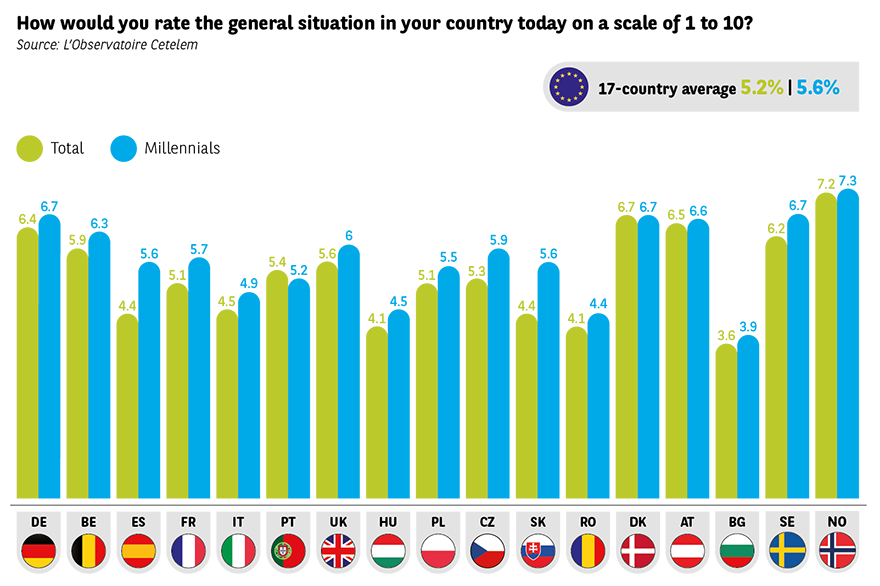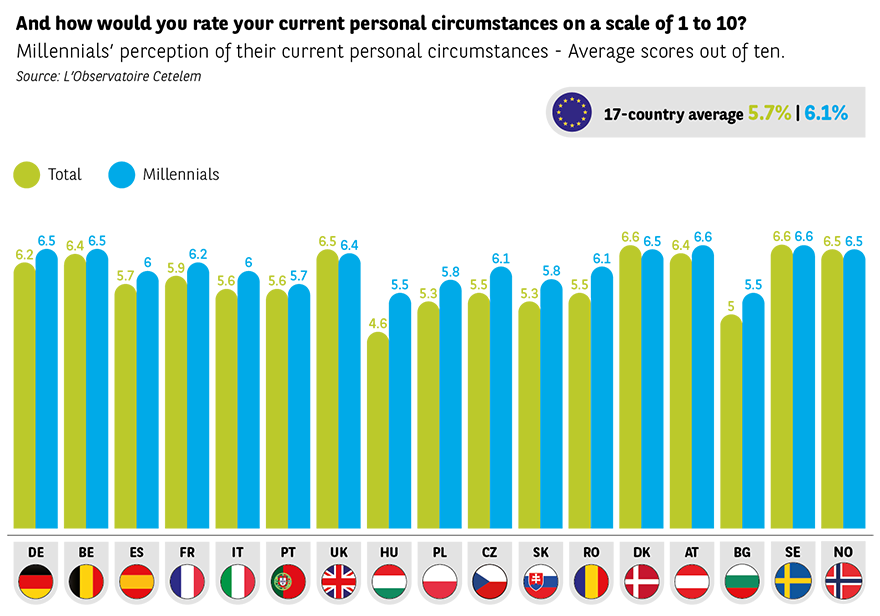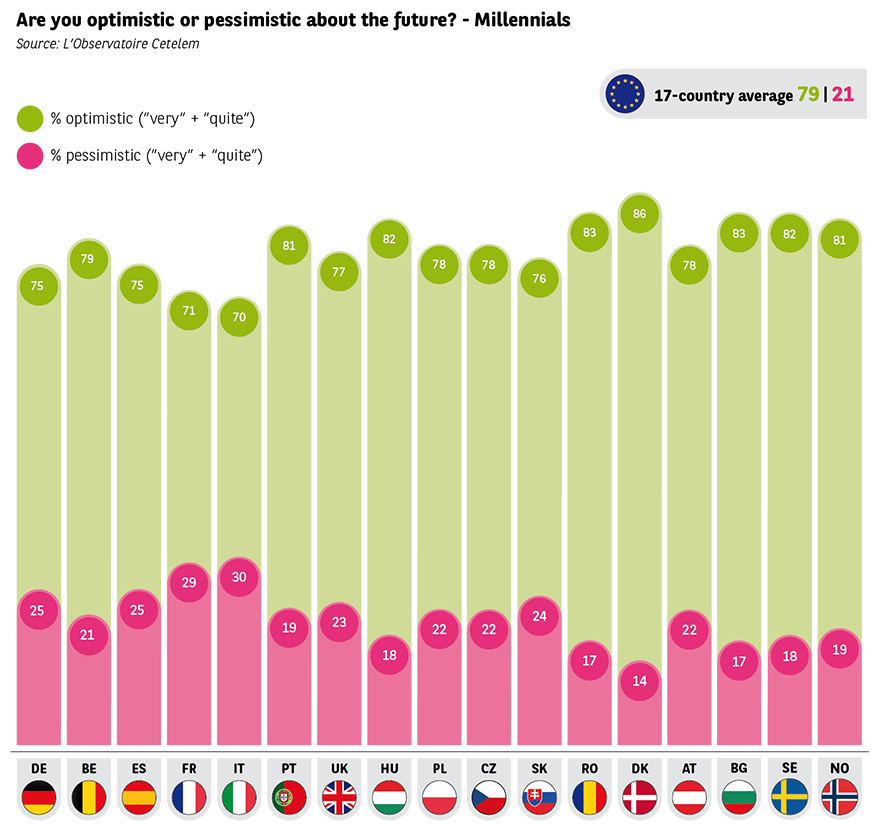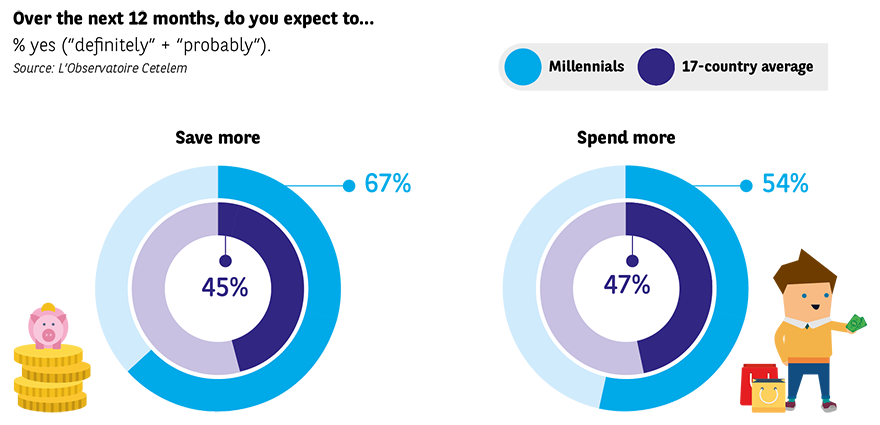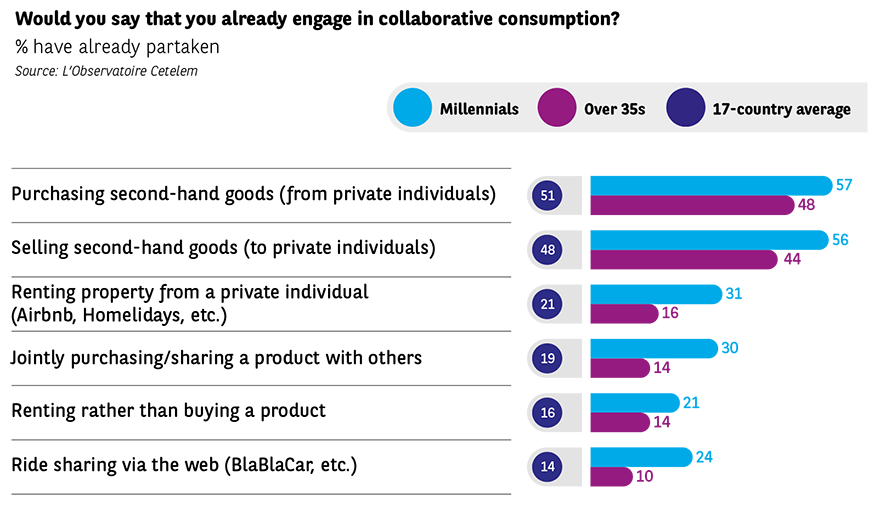Personal Circumstances and National Situations are Improving


Buoyant nations…
18-35 year olds hold a more positive view of the situation in their country than their elders (5.6 vs. 5.2). This is a common viewpoint across the countries, except for Portugal, where the score awarded by Millennials is below the national average. Conversely, the younger generations in France and the Czech Republic are much likelier to state that their country is in rude health than their compatriots as a whole (5.7 vs. 5.1 and 5.9 vs. 5.3).
… and even better personal circumstances
Millennials are just as optimistic from an individual standpoint. While the average score awarded by over 35s is 5.7, the younger generation give their personal circumstances a very confident 6.1. Intergenerational differences are in some cases quite significant, as is the case in Hungary and, to a lesser extent, in the Czech Republic, Bulgaria and Poland. French Millennials are also more positive than their elders (6.2).
An appealing future
When they look ahead to the future, Millennials remain positive. 8 out of 10 declare themselves to be quite or very optimistic. On this question, the French and Italians stand apart from other Europeans by expressing a degree of concern (29% and 30% are pessimistic).
Encouraging material circumstances
The singularity of Millennials becomes particularly pronounced when they are questioned about spending power. While only a quarter of Europeans in general believe that theirs has increased, 38% of Millennials believe this to be the case. Only 21% say it has fallen.
Spending and saving
It is hardly surprising that 54% intend to increase their spending over the next 12 months (vs. 47% of Europeans as a whole). More surprising is the fact that 67% declare that they would like to save more (vs. a European average of 45%). Perhaps Millennials are not the care-free generation that people imagine and like to describe them as.
What’s more, their consumption habits have a pronounced collaborative bias. 80% hold a positive view of this philosophy (vs. 72% on average). The Norwegians, French and Spanish make up the top three (91%, 88% and 86%, respectively). The Hungarians and Czechs have less of an appetite for the collaborative model (64% and 68%).
Purchasing second-hand goods is the most common practice, with 57% of Millennials having previously done so. The growth of house sharing in major European cities, amid rising property prices, seems to explain this choice. Selling second-hand items also ranks highly (56%). It is also worth noting that 1 in 4 Millennials use ride sharing, compared with just 1 in 10 over 35s.

